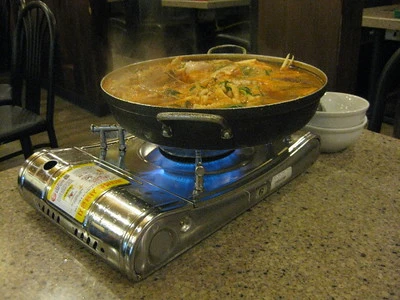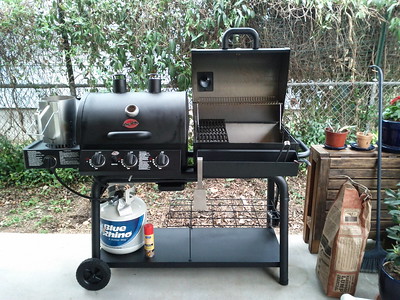
When it comes to cooking, choosing between a butane stove and a gas stove can make a big difference in your culinary experience. Both types of stoves have their own advantages and drawbacks, making the decision not as straightforward as you might think.
Knowing what sets them apart can help you make an informed choice, whether you’re setting up your kitchen at home, heading out for a camping trip, or needing a temporary cooking solution.
In this article, we will delve into various aspects such as cost, ease of use, portability, cooking performance, safety, and versatility to help you decide which stove is better suited for your needs.
Cost
Butane stoves are often less expensive at first. You can buy one for about $20 to $50. This makes them a good choice if you don’t want to spend a lot right away. But the butane gas canisters can add up in cost. Each canister might last for a few hours of cooking and cost around $2 to $5.
Gas stoves have a higher initial cost. They can range from $100 to over $1000. The price depends on the brand, size, and features. But the fuel, which is natural gas or propane, is usually cheaper in the long run. A monthly gas bill might be between $10 and $50, based on how much you cook.
Ease of Use
Setting up a butane stove is very simple. First, you take it out of the box. Then you place a butane canister in the slot. You lock the canister in place. Finally, you turn the knob to light the stove. The whole process takes just a few minutes. This makes butane stoves easy for anyone to use, even if you’ve never used one before.
Setting up a gas stove is more complicated. It’s not something you usually do yourself. You often need a professional to install it. They will connect the stove to a gas line or a propane tank. They also make sure everything is safe. Once set up, using the stove is as simple as turning a knob. But the initial setup is more involved than a butane stove.
Read also: Can You Use Butane for BBQ? (Weigh the Pros and Cons)
Portability
Butane stoves are small and light. They usually weigh between 4 to 10 pounds. You can carry them easily in a backpack or a small bag. This makes them great for camping trips or outdoor events. You can even use them in different places around your home if you need an extra burner.
Gas stoves are much bigger and heavier. They can weigh over 100 pounds. They are usually installed in a fixed spot in your kitchen. Moving them is not easy. You would need help and possibly even special equipment to move a gas stove.
When it comes to portability, butane stoves are the clear winner. They are designed to be taken with you wherever you go. Gas stoves, on the other hand, are meant to stay in one place.
When comparing ease of use, butane stoves win for setup. They are quick and simple to get going. Gas stoves require more effort at first. But once they are set up, they are just as easy to use as butane stoves.
Cooking Performance
Butane stoves give off a good amount of heat. They usually have a heat output of around 7,000 to 10,000 BTUs (British Thermal Units). This is enough for boiling water, frying eggs, or making pasta. But the heat can sometimes be uneven. This means one side of your pan might get hotter than the other.
Gas stoves offer more control over heat. They can have a heat output from 5,000 to 20,000 BTUs. This wide range lets you do more types of cooking. You can simmer sauces on a low flame or sear steaks on a high flame. The heat is also more even, which helps your food cook better.
When we compare cooking performance, gas stoves have an edge. They offer better heat control and more even cooking. Butane stoves are good for basic cooking tasks, but gas stoves let you do more.
Safety
Butane stoves often come with safety locks. These locks make sure the butane canister is in place before you light the stove. Some butane stoves also have a shut-off feature. This turns off the stove if it gets too hot or if it tips over. But you should be careful. Using a butane stove in a closed area can be dangerous because it uses up oxygen and can produce carbon monoxide.
Gas stoves are generally safe when installed correctly. Many have a feature called a flame failure device. This stops the gas if the flame goes out. This helps to prevent gas leaks. However, a gas stove must be installed by a professional to ensure it is safe. Like butane stoves, they also should not be used in closed areas without good ventilation.
When it comes to safety, both types have their features to keep you safe. Butane stoves are safe if you use them as the instructions say. Gas stoves are also safe when they are installed and used correctly. The key for both is to follow all safety guidelines and use them in well-ventilated areas.
Read also: Can I Use Butane Indoors? (Safety Measures to Take Note Of)
Versatility
Butane stoves are best for simple cooking tasks. They are good for boiling water, frying eggs, or making simple meals like pasta or soup. You can use them for outdoor events or camping trips. They are also good if you need an extra burner at home for a party or a holiday meal. But they are not ideal for complicated cooking that needs precise heat control.
Gas stoves are more versatile. You can do a lot more types of cooking on them. They are great for simmering, searing, and sautéing. You can even use them for baking if they have an oven as part of the unit. They offer a wide range of heat settings. This lets you cook complex dishes that need careful heat management.
When you compare versatility, gas stoves are the clear winner. They can handle many different types of cooking. Butane stoves are good for basic tasks, but gas stoves offer much more.
Conclusion
So, which is better, a butane stove or a gas stove? The answer depends on what you need.
If you’re looking for something portable and easy to use right away, a butane stove is a great choice. It’s good for simple cooking tasks and perfect for outdoor activities like camping. It’s also less expensive upfront.
On the other hand, if you want more control over your cooking and plan to use the stove frequently, a gas stove may be better. It offers a wider range of heat settings and is generally more versatile for different cooking methods. While it costs more initially, it could be cheaper in the long run due to lower fuel costs.
In the end, the best choice depends on your specific needs, cooking habits, and where you plan to use the stove.

Jeremy is a highly experienced professional propane technician with over 21 years of experience in the industry. Throughout his career, he has gained extensive knowledge and expertise in propane gas installation, maintenance, and repair, as well as in ensuring safety and compliance with industry standards. Mike has worked with various residential, commercial, and industrial clients, providing top-notch services and solutions to meet their propane needs. He is dedicated to his craft and passionate about delivering exceptional service to his clients.







